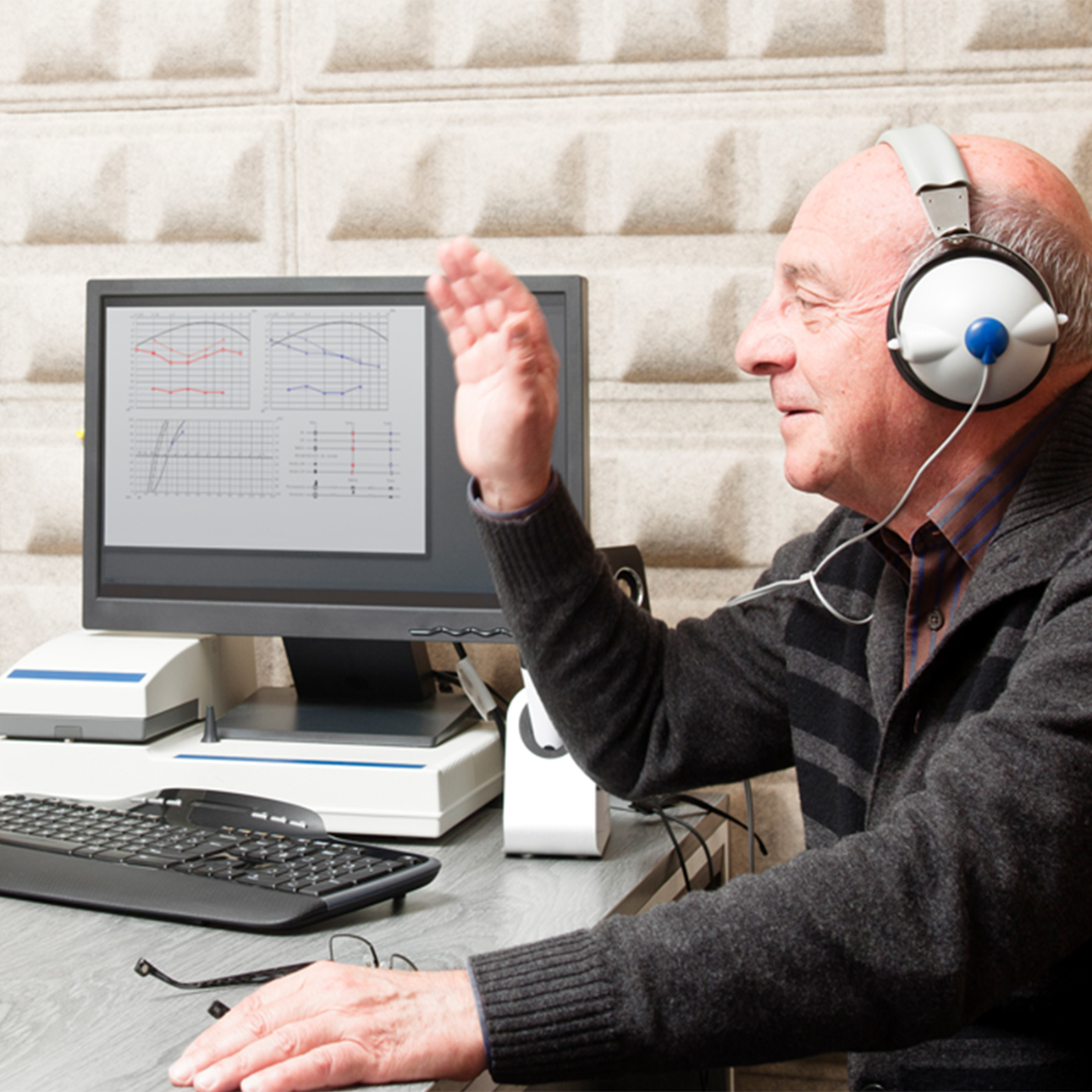
Tinnitus
Treatments
It is important to keep in mind that tinnitus is a symptom, not a disease. As such, the optimal treatment strategy should be directed toward eliminating the disease, rather than simply alleviating the symptom. Also, because tinnitus may be symptomatic of a more serious disorder, it is important to try to find the medical cause before deciding on treatment.
Preventing and Minimizing Tinnitus
Here are a few things patients can do to help prevent and minimize tinnitus:
- Reduce exposure to extremely loud noise
- Avoid total silence
- Decrease salt intake
- Monitor one's blood pressure
- Avoid stimulants such as caffeine and nicotine
- Exercise
- Reduce fatigue
- Manage stress
- Educate yourself
While there is no known cure for most forms of tinnitus, there are many management options available and most tinnitus sufferers can find varying degrees of relief from one or a combination of the following.
Medications
There is no single medication that works on all tinnitus patients. Some of the antidepressants and anti-anxiety medications available are helpful for certain tinnitus patients, however more research is needed in this area.
Auditory Habituation or Tinnitus Retraining Therapy
These techniques consist of two main components — directive counseling and low level sound generators.
- Directive counseling provides intensive, individualized education regarding the causes and effects of tinnitus on the ear, the brain, and the coping mechanism.
- Low-level sound generators produce broadband noise via hearing aid type devices at a soft enough level so that the brain perceives both the noise and the tinnitus. Eventually, the brain may relearn a pattern that will de-emphasize the importance of the tinnitus. These devices also may be helpful in desensitizing patients who are overly sensitive to sound.
Acoustic Therapy
The use of an externally produced sound to either cover up or in some way inhibit or alter production of tinnitus can offer relief for some. There are six main methods of acoustic stimulation.
- A sound generator, sometimes called tinnitus masker: an ear-level electronic device housed in a hearing aid case that produces a white noise.
- A tinnitus instrument: a combination hearing aid and sound generator.
- Hearing aids: help to amplify speech as well as environmental noise and thus stimulate areas of the ear and brain that otherwise may not be receiving adequate stimulation because of the hearing loss.
- A tabletop or portable sound generator: these can be purchased at certain electronic suppliers such as the Sharper Image.
- Home masking: such as the use of electric fans, radios or television.
- Music therapy (see below).
Unfortunately, some tinnitus sufferers find that masking noise may merely be a substitute of one annoying sound for another. It is thus better to try to relegate the annoyance of tinnitus to the background of one's consciousness through habituation or retraining methods.
Music Therapy
Many patients find that music, particularly classical passages that don't contain wide variations in loudness (ampliltude) can be both soothing to the limbic system (the emotional processor in the brain that is commonly negatively linked to a patient's reaction to tinnitus) and stimulating to the auditory cortex. If a hearing loss is present, it may be necessary to alter the spectrum of the music so that the cortical neurons.
Amplification
The use of hearing aids and a combination of hearing aids and maskers are often effective ways to minimize tinnitus. While it is not clear whether hearing aids help by amplifying background sounds that can mask out the tinnitus or by actually altering the production of tinnitus, most hearing aid wearers report at least some reduction in their tinnitus. This may be due to the reduction in contrast between tinnitus and silence, or because of the new stimulation provided to the brain.
Neuromonics Acoustic Desensitization Protocol
Neuromonics Acoustic Desensitization Protocol is a process that uses counseling as well as a body worn processor connected to high fidelity earphones that present pleasant music that is filtered in accordance with an individuals hearing loss.
Counseling or Cognitive-Behavioral Therapy
Regardless of the cause of tinnitus, if a person is not bothered by the tinnitus, it ceases to be a problem. Psychological intervention aimed at successfully reducing the stress, distress and distraction associated with the tinnitus can be very productive and often produces the most attainable goals.
Stress Management
The very high correlation between stress and tinnitus disturbance underscores the need to maintain one's composure and logic when trying to cope with tinnitus. Relaxation, guided imagery and self-hypnosis are examples of self-help methods used to help combat the stress, anxiety and sleep disturbances associated with tinnitus.
Other Treatment Options
Other options that may help patients with tinnitus include:
- Support Groups Local peer support groups offer emotional support to patients and a place to discuss and share treatment techniques.
- Dental Treatment Jaw joint disorders, called temporomandibular (TMD), may exacerbate tinnitus. Splints and exercises may relieve these problems.
- Nutritional Counseling All tinnitus patients should maintain a balanced diet.
- Biofeedback Biofeedback is a technique of making unconscious or involuntary bodily processes detectable by the senses in order to manipulate them by conscious mental control. Biofeedback with counseling can help relieve stress patterns that can worsen the perception of tinnitus.
- Alternate Approaches Although there is no scientific data showing consistent benefit from approaches such as hypnosis, acupuncture, naturopathy, chiropractic care and many herbal preparations, some patients do perceive a benefit.
UCSF Health medical specialists have reviewed this information. It is for educational purposes only and is not intended to replace the advice of your doctor or other health care provider. We encourage you to discuss any questions or concerns you may have with your provider.















